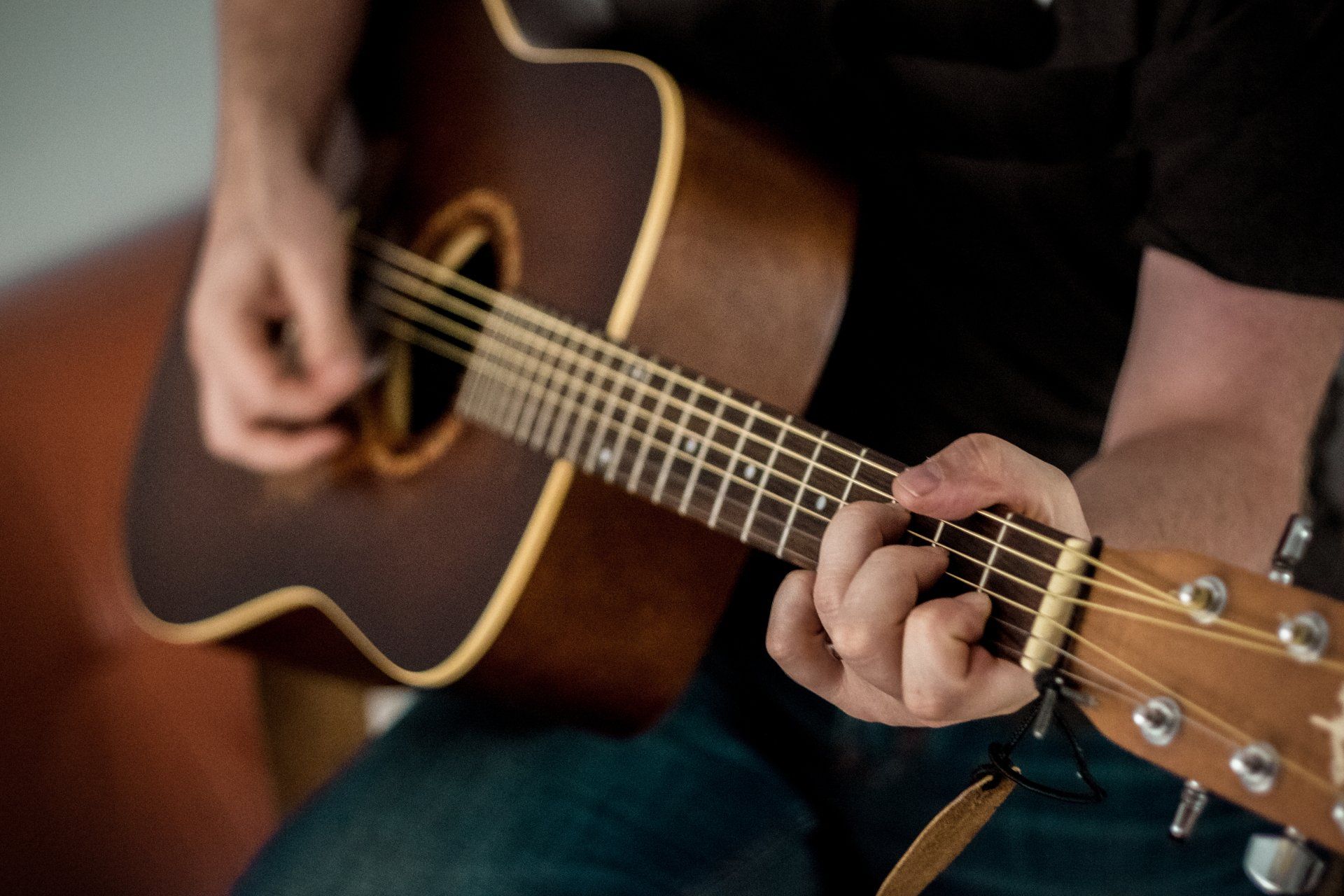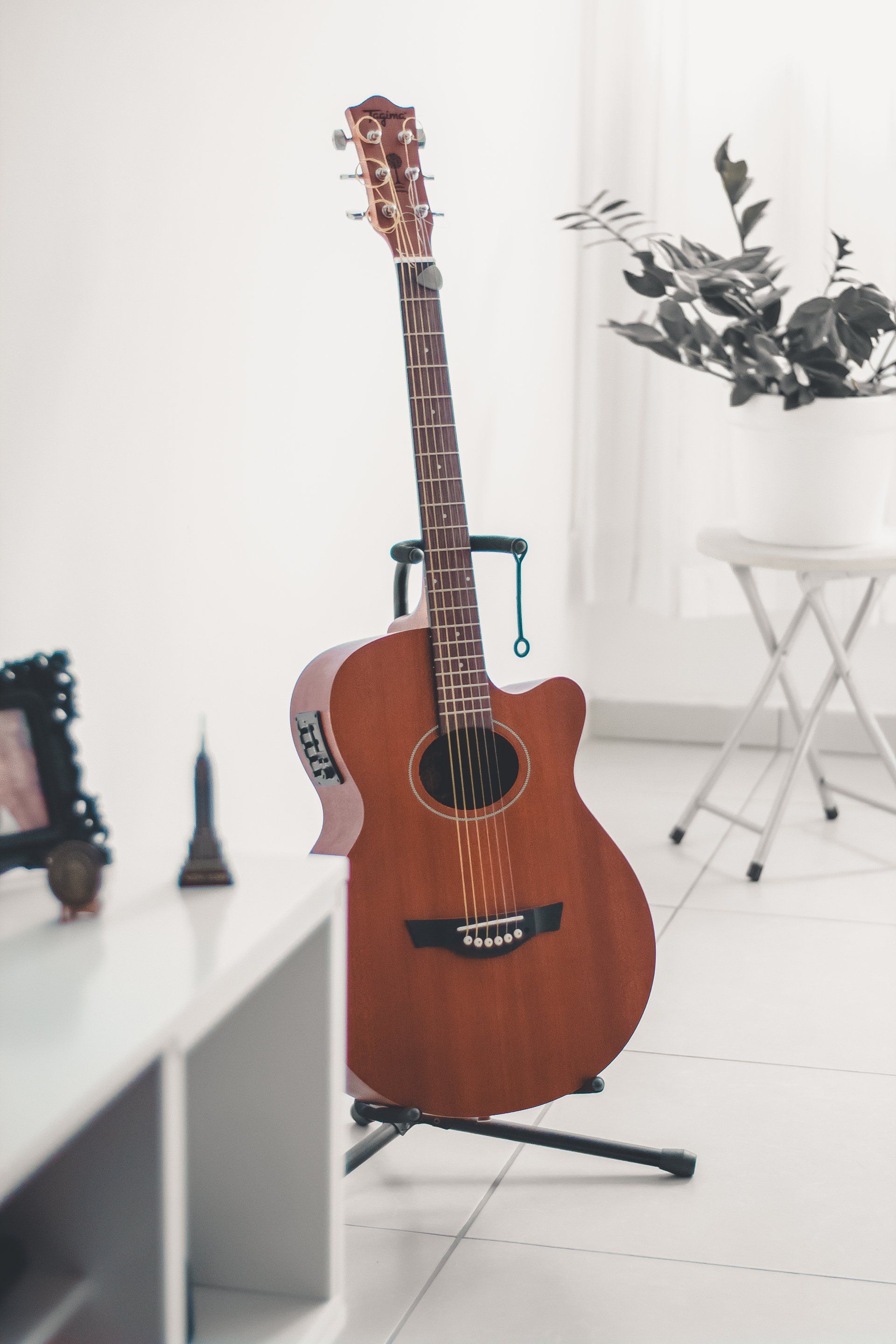Are you ready to take your guitar playing to the next level?
With the right practice routine, you can make great strides towards becoming a better guitarist. Whether you are taking guitar lessons or teaching yourself, creating a structured practice schedule is essential for getting the most out of your guitar practice. Here are five tips to help you create a killer guitar practice routine and achieve your goals!
1) Choose a regular time and place to practice
When it comes to forming a guitar practice routine, the most important step is to choose a consistent time and place to practice. It's best to set aside a specific day of the week and time each week, such as every Monday evening at 8pm. Doing this will create a habit and will also help make sure that you have enough time to practice. When deciding where to practice, look for a quiet space with minimal distractions. This could be a room in your house, or even your local library if you prefer. It's important to make sure that the area is comfortable and well-lit so that you can focus on playing your acoustic guitar. For adults, having access to online guitar lessons can be helpful. For kids, finding guitar for kids lessons can be beneficial for keeping them engaged in their practice. Once you've chosen a regular time and place to practice, you can move onto the next step of creating your guitar practice routine.
2) Set realistic goals
Setting realistic goals for your guitar practice is the key to reaching your goals in the long term. When starting out, it's important to not expect too much of yourself at once, as this can lead to frustration and dissatisfaction. Instead, break down your progress into manageable chunks - instead of trying to learn a whole guitar lesson in one session, focus on practicing one or two parts until you are comfortable with them. This will help you progress and enjoy your guitar practice more. Additionally, don't forget to take time off to allow yourself to rest and relax - this is just as important as regular guitar practice in order to stay motivated and make progress.
3) Make a plan
When it comes to creating a guitar practice plan, it's important to be realistic about your goals. Start small, and set achievable goals such as learning one new chord or mastering a specific lick each week. Break down complex tasks into smaller chunks, and give yourself enough time to practice and master the material. Once you have your goals in mind, make a plan of action. Break up your practice into manageable sections and decide how long you will spend on each one. For example, if you want to learn a new chord, dedicate 15 minutes each day to practice the shape and fingerings. This will help ensure that you are making steady progress and not overwhelming yourself with too much material at once.
4) Stick to it
Once you’ve made a plan and set realistic goals, it’s time to stick to it. The more consistent you are with your practice routine, the better results you’ll see in your guitar playing. It may take some self-discipline and dedication, but it will be worth it in the long run.
Make sure that when you sit down with your acoustic guitar or electric guitar, you actually play and practice. Avoid getting distracted by checking emails or scrolling through social media. This can be difficult if you are practicing in a busy room, so try to find a quiet place where you won’t be disturbed.
Also, don’t put too much pressure on yourself. If you don’t hit all of your goals each day or week, don’t beat yourself up. Instead, recognize what went well and what needs improvement and use that as motivation to get back to practice the following day.
5) Be patient
Patience is an essential part of learning guitar, so don't get discouraged if you don't see results right away. Learning to play the guitar can be a challenge, especially for adults or kids who are just starting out. As a matter of fact, most kids have far more patience and positivity than adults when it comes to seeing their own progress. We adults should follow their example. Even if you take acoustic guitar lessons, you won't master the instrument overnight. Keep in mind that it takes dedication and practice over time to become proficient at the guitar. Have realistic expectations and don't compare yourself to others. There will be times when progress seems slow, but stay focused on your goals and enjoy the journey.











